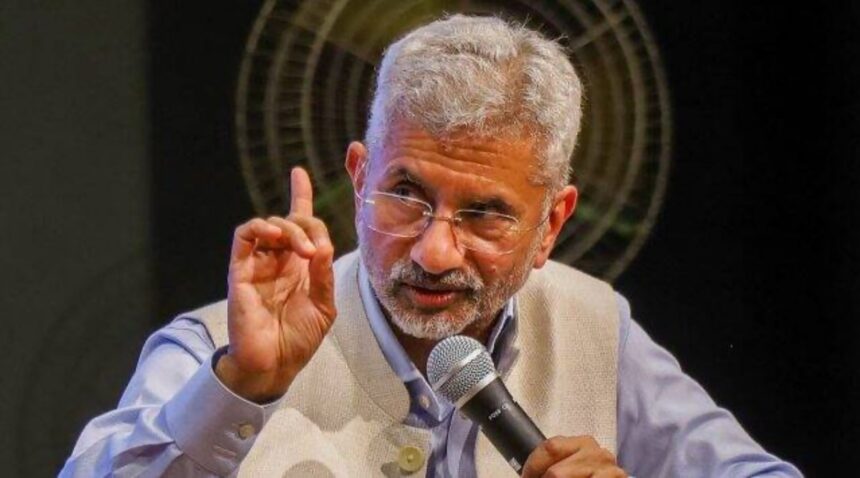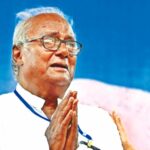External Affairs Minister S Jaishankar, speaking to reporters on Operation Sindoor on Thursday, said that Prime Minister Narendra Modi had made it clear that any dialogue with Pakistan will be limited to the issue of terrorism. He also said that the Indus Waters Treaty is in abeyance and will continue to be until “cross-border terrorism by Pakistan is credibly and irrevocably stopped”.
Jaishankar’s comments come days after India and Pakistan agreed to a ceasefire, following the Pahalgam attack in and Kashmir on April 22, in which 26 civilians were killed.
“The Prime Minister made it very clear that talks with Pakistan will be only on terror. Pakistan has a list of terrorists that needs to be handed over, and they have to . They know what to do. We are prepared to discuss with them what is to be done on terrorism. Those are the talks which are feasible,” Jaishankar told reporters after attending the inauguration of the Embassy of Honduras in New .
VIDEO | On cessation of firing and military action between India and Pakistan, External Affairs Minister Dr S Jaishankar () says, “We achieved the goals which we set out to do by destroying the terrorist infrastructure. Since key goals were achieved, I think we…
— Press Trust of India (@PTI_News)
He added that India’s relations and dealings with Pakistan will be “strictly bilateral,” which has been a national consensus for many years and there is “absolutely no change” in that consensus.
On the Kashmir issue, he said, “The only thing that remains to be discussed on Kashmir is vacating of illegally occupied Indian territory in Pakistan-occupied Kashmir, we are open to discuss it with Pakistan.”
While speaking about Operation Sindoor, he said that India had conveyed a firm message to Pakistan: the operations were targeted solely at terrorist infrastructure, not at the Pakistani military.
“We had sent a message to Pakistan saying we are striking at terrorist infrastructure, we are not striking at the military and the military has an option of standing out and not interfering in this process. They chose not to take that good advice,” Jaishankar said.
He further said that the satellite imagery provided by Indian Army officials showed the ’s terror camps. “Today, the satellite pictures which actually bring out graphically how much damage we did and how little damage they did,” he said.
VIDEO | On Pakistan’s appeal to India to rethink suspension of Indus Water Treaty, External Affairs Minister Dr S Jaishankar () says, “The Indus Waters Treaty is held in abeyance and will continue to be held in abeyance until the cross-border terrorism by Pakistan…
— Press Trust of India (@PTI_News)
Jaishankar also pointed out a shift in Pakistan’s stance following the events of May 10. “The same people who were not willing to stand down on May 7 were willing to talk and stand down and talk on May 10. It is very clear who wanted the cessation of firing,” he said.
Without referring to US President Donald on Truth Social, the External Affairs Minister said that India and the United States have been engaged in trade talks and negotiations. He asserted that until a trade agreement is finalised, it would be “premature” for India to make any judgment regarding the outcome of these talks.
VIDEO | On trade talks between India and US, External Affairs Minister Dr S Jaishankar () says, “Between India and the US, trade talks have been going on, negotiations have been going on. Team is going at this point. These are complicated negotiations. Nothing is…
— Press Trust of India (@PTI_News)
“Between India and the US, trade talks have been going on, negotiations have been going on. The team is going at this point. These are complicated negotiations. Nothing is decided till everything is. Any trade deal has to be mutually beneficial, any trade deal has to work for both countries. That would be our expectation from the trade deal. Until that is done, any judgment on it would be premature,” he said.
India carried out precision strikes on terror infrastructure early on May 7 following which Pakistan attempted to attack Indian military bases on May 8, 9 and 10. The Pakistani actions were strongly responded to by the Indian side.
The hostilities ended with an understanding on stopping the military actions following talks between the Directors General of Military Operations of both sides on May 10.








